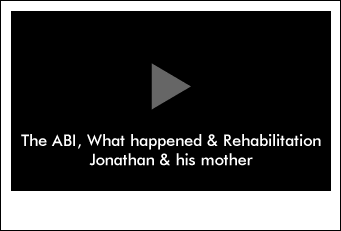- SELF STUDY MODULES
- 1. Intro to TBI
- 2. Communication
- 3. Skills for independence
- 4. Cognitive changes
- 5. Behaviour changes
- 6. Sexuality
- 7. Case management (BIR)
- 8. No longer available
- 9. Mobility & motor control
- 10. Mental health & TBI:
an introduction - 11. Mental health problems
and TBI: diagnosis
& management - 12. Working with Families
after Traumatic Injury:
An Introduction - 13. Goal setting
- 12.0 Aims
- 12.0A Take the PRE-Test
- 12.1 Why is working with families important
- 12.2 What is the adjustment experience for families
- a) The journey
- b) The challenges
- 12.3 Principles and skills
- a) Partnering
- b) Whole of family
- c) Family reactions
- d) Respect
- e) Empowering
- 12.4 When to get help
- 12.5 Take home messages
- 12.6 Resources
- 12.7 Take the POST-Test
12.3d Principles and skills: Respect
- i) Principle:
Treating families with respect Q - ii) Strategies
- iii) Cheryl : Looking
after oneself: Video - iv) Respecting
family privacy

Principle: Treating families with respect
As we have mentioned, every family is unique, and may have different responses and needs.
Different cultural backgrounds, languages, beliefs, coping styles and social background, will influence how a family responds to staff, treatment, and the various challenges they face.
These aspects may be very different to our own experience of family and our own expectations about what a ‘good family’ will believe and do.
A starting point in demonstrating respect is being mindful of the labels that we use to describe families. Although there are many positive words and phrases that staff use, we need to be on our guard that we don’t fall into the trap of using negative labels, particularly for families who are challenging because of their differences compared to our ideas and expectations of families.
Positive labels
Easy to work with
Motivated
Encouraging
Understanding
Pro-active
Supportive
Compliant
Realistic
Negative labels
Intrusive
Lack of insight
Noncompliant
Difficult
Interfering
Demanding
Time consuming
Over protective
Unrealistic
Stubborn
In the “too hard basket”
Resistant
Complex
Demonstrating respect in our work with families
- Avoid labelling families. Rather than labelling family members, try to understand why they are responding or acting as they are. If families are acting in ways that are aggressive, controlling or assertive, it is most likely because they are confused or frightened and trying to regain some control in their lives
- Be clear about the staff member role and communicate what staff can and cannot do to help family members understand
- Use consistent ways of communicating and follow through on agreed tasks.
- Don’t ignore what family members have to say
- Try to fit in with the families cultural practices if possible (e.g., leave shoes at door)
Make sure there are clear ways that families can raise their concerns or complaints without feeling they are risking the care or treatment of their relative. It is easy to forget that there is a power difference between families and the broader service systems within which staff work
Respect for everyone

Respect for oneself (1 min)
Respect for oneself is a key ingredient in sustaining what needs to be done.
When respecting people it is important to affirm people's respect for themselves.
People who respect themselves also look after themselves.
The video may take a few moments to load.
Respecting family privacy
Being sensitive to family privacy is one important way of showing our respect. Some strategies can include:
- Always knock or ring before entering a house or a room
- Leave the room if a family member is taking a phone call
- If relatives or friends of the client visit, try to find somewhere else to go so that they can have time together
- Don’t expect family members will share all their personal information. They have a right to choose what information they feel is important to share. It is unnecessary to discuss information that is not relevant to the working relationship you have with them.
If family members do choose to share personal information, keeping confidentiality is important. In some situations staff must share information such information with the manager of the service

